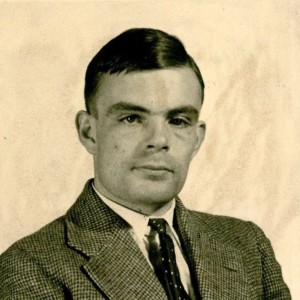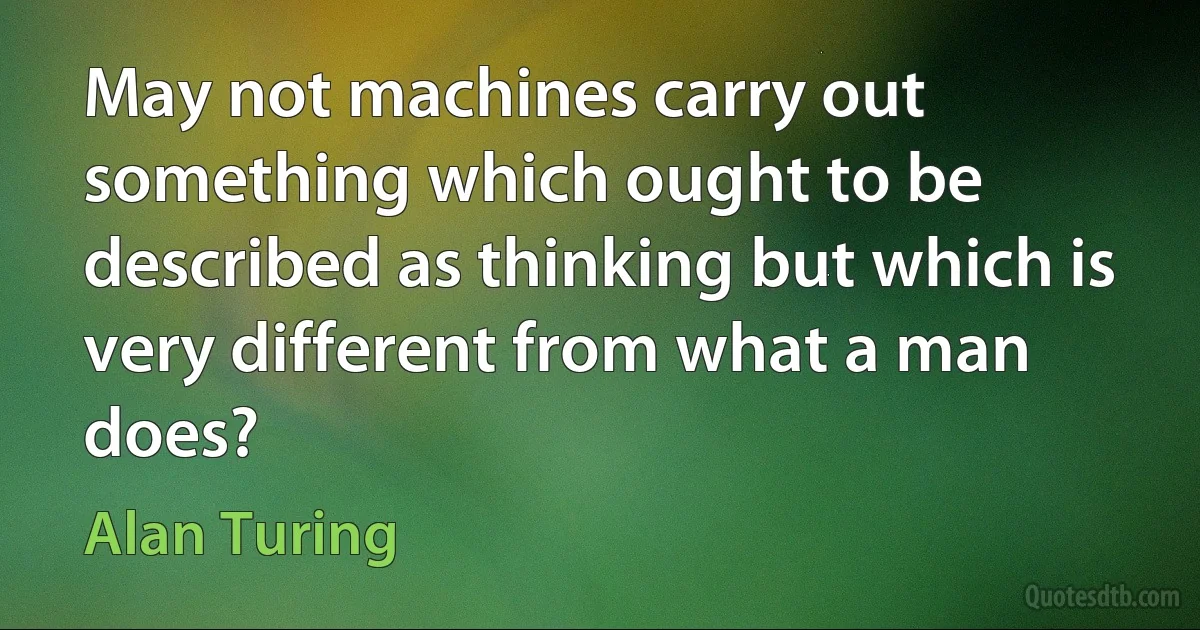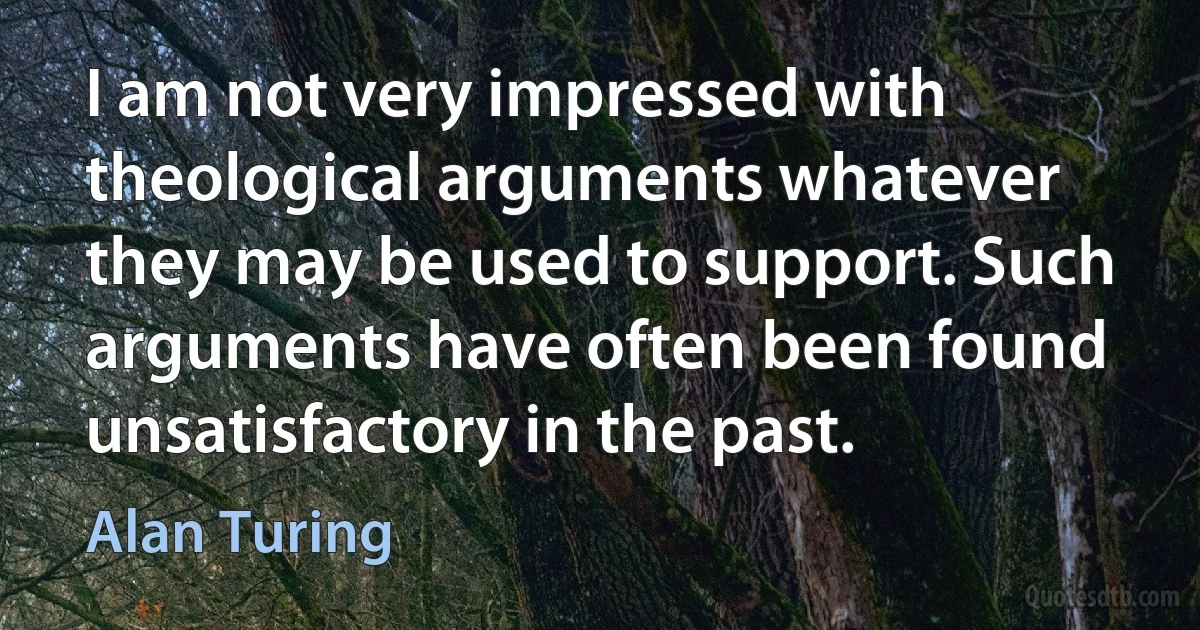Alan Turing quotes - page 2
Alan Turing was a British mathematician, computer scientist, and codebreaker, widely regarded as a pioneer of modern computing. His work played a crucial role in decoding German messages during World War II. He is remembered as a visionary who laid the foundations for artificial intelligence and computing theory. Here are 41 of his quotes:
The view that machines cannot give rise to surprises is due, I believe, to a fallacy to which philosophers and mathematicians are particularly subject. This is the assumption that as soon as a fact is presented to a mind all consequences of that fact spring into the mind simultaneously with it. It is a very useful assumption under many circumstances, but one too easily forgets that it is false.

Alan Turing
The majority of them seem to be "sub-critical," i.e., to correspond in this analogy to piles of sub-critical size. An idea presented to such a mind will on average give rise to less than one idea in reply. A smallish proportion are super-critical. An idea presented to such a mind may give rise to a whole "theory" consisting of secondary, tertiary and more remote ideas.

Alan Turing
Mathematical reasoning may be regarded rather schematically as the exercise of a combination of two facilities, which we may call intuition and ingenuity. The activity of the intuition consists in making spontaneous judgements which are not the result of conscious trains of reasoning... The exercise of ingenuity in mathematics consists in aiding the intuition through suitable arrangements of propositions, and perhaps geometrical figures or drawings.

Alan Turing
I am not very impressed with theological arguments whatever they may be used to support. Such arguments have often been found unsatisfactory in the past. In the time of Galileo it was argued that the texts, "And the sun stood still... and hasted not to go down about a whole day" (Joshua x. 13) and "He laid the foundations of the earth, that it should not move at any time" (Psalm cv. 5) were an adequate refutation of the Copernican theory.

Alan Turing
Can machines think?"... The new form of the problem can be described in terms of a game which we call the 'imitation game." It is played with three people, a man (A), a woman (B), and an interrogator (C) who may be of either sex. The interrogator stays in a room apart from the other two. The object of the game for the interrogator is to determine which of the other two is the man and which is the woman. He knows them by labels X and Y, and at the end of the game he says either "X is A and Y is B" or "X is B and Y is A." The interrogator is allowed to put questions to A and B... We now ask the question, "What will happen when a machine takes the part of A in this game?" Will the interrogator decide wrongly as often when the game is played like this as he does when the game is played between a man and a woman? These questions replace our original, "Can machines think?

Alan Turing
Alan Turing
 Occupation: English Mathematician
Occupation: English Mathematician
Born: June 23, 1912
Died: June 7, 1954
Quotes count: 41
Wikipedia: Alan Turing











